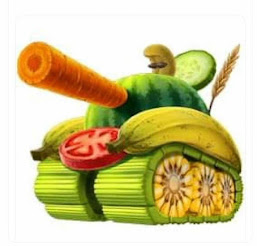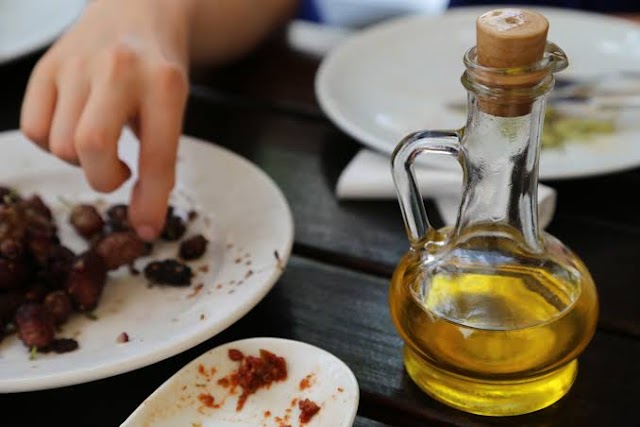There are two varieties of Costus, the white is called Qust-al-Bahri (Marine Costus), and the other is called Indian Costus, which is the hotter among them while the white type is the milder, both kinds have numerous benefits. Both types of Costus are hot and dry in the third degree, and they dry the phlegm and colds. When they're taken as a drink, they help a weak liver and stomach and the colds associated with similar cases, costus also helps against Quartan fever( fever that comes on every fourth day), the pain on the side of the body and toxins.
TREATMENT OF SKIN STAINS, MOLES AND PIGMENTATION
When the face is smeared with Costus that's mixed with water and honey, they heal the spots that appear on the face, Galinus said that costus heals tetanus, the pain in the sides and removes spots (which he called the seeds of the pumpkin).
TREATMENT OF PLEURISY
Some ignorant croakers are clueless of and deny the Costus as an effective medicine against the pain in the sides of body (Pleurisy). Still, they will swiftly embrace it as if it was a sacred textbook; also, numerous doctors have also stated that Costus helps against the pain in the flank that's accompanied by phlegm. If these ignorant doctors get apprehensive of what Galinus has stated about the Costus. We stated before that difference between the remedies contained in the Prophetic drug and the remedies of regular croakers is much larger than the difference between folk drug as compared to regular drug. We also stated that what's transferred down of the supernatural disclosure, as compared to what's proven by trial compares to the difference between the Noble Master and the commoner.
In addition, if any of the ignorant croakers (who ignore the Prophetic drug) were able to discover a remedy that the Jews, the Christians and the polytheist croakers have specified, they would embrace it and would clearly defend it. We don't deny that habits have a part in making the cure work or fail. Those who are used to certain foods and drugs would profit from similar points more than those who aren't habitual to them and who occasionally would not profit at all from them. The statements of the best doctors don't apply in all cases and places. Taking the statements of these doctors as being specific and not general doesn't lessen the degree of their knowledge. The same ruling applies indeed further to the statements of the Prophets. Yet, the hearts of humanity have a built-in degree of unawareness and unfairness, except for those whom Allah has endowed with the light of correct faith and enlightened their hearts with true guidance.
The doctors divide pleurisy into two kinds, real and unreal. The first type is an infected growth that appears in the pleura that coats the ribs. The alternate type causes a analogous pain and attacks the pleura as a result of thick, congested flatulence between the peritoneum (smooth transparent membrane that lines the abdominal cavity and part of the pelvic region). The pain caused by the unreal pleurisy is acute while the real pleurisy causes overcharging pain. The author of Qanoon said, occasionally, the flank (of the body), the peritoneum, chest muscles, ribs and encompassing areas suffer from an extremely painful growth called pleurisy. occasionally, there could be pain in these same areas of the body but not as a result of growth; but of accumulating dangerous gases (flatulence), and therefore, the people suppose that it's the first type when in fact it's not. ’ He also said," Know that every type of pain that attacks the side or the flank is called That ul Janb (pleurisy), which is deduced from the place where it appears (i.e. Janb, the flank). That's why every type of pain on the side or flank is called That ul Janb regardless of the reason of the complaint. This is the meaning of Hippocrates' statement that those suffering from That ul Janb will get relief from taking a bath. It's said that his statement includes those who suffer from pleurisy, as well as, lung complaint (pulmonary) pains that affect from a bad constitution, congested conditions without growths or fever. Some doctors said that in Greek the term pleurisy means the warm growth that appears on the side and also the lumps of all internal organs. The growth of any organ is called pleurisy when it's a warm growth only. Further, there are five symptoms that occur the real pleurisy fever, coughing, stinging pain, hard breathing (dyspnea) and pneumonia.
Sea-costus (Indian costus) is used to cure the unreal pleurisy. When the Indian costus is ground to fine powder, mixed with hot oil and also used as an ointment on the affected area, or when the sick person licks it, it'll be a best cure for the disease. In this case, the costus decomposes the septic substances, strengthens the internal organs and opens the obstructions or clogs. Al- Masihi said, ‘ Costus is hot and dry and constipates, strengthens the internal organs, dissipates the wind, opens the clogs, helps against pleurisy and dries out extra humidity. Also, costus is good for the brain and might help against the real pleurisy, if a phlegmatic substance had caused it; especially when the illness is weakening.
TREATMENT OF TONSILLITIS
Administering scrubbed aloes (Qust al Bahri) through the nose helps against tonsillitis, which is basically composed of blood related phlegm that accumulates in the bodies of youthful boys. Costus or Aloes strains the uvula and pull it up to its proper place. Aloes (Qust al Bahri) help against other hot affections.
The author of AL-Qanoon stated that Costus, Yemeni alum, and marjoram seeds benefit against tonsillitis.
Administering the medication through the nose (Sa'oot) involves either simple or composite remedies that are ground and dried. Then, when when required, the medication is administered through the nose of the infected person while he lays on his back and his shoulders are elevated so that the head lays below the shoulders. In this position, the medication would reach the head towards the tonsils and extract the disease by sneezing.








.jpeg)
0 Comments